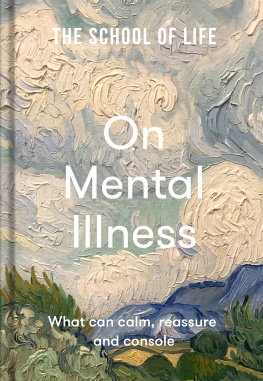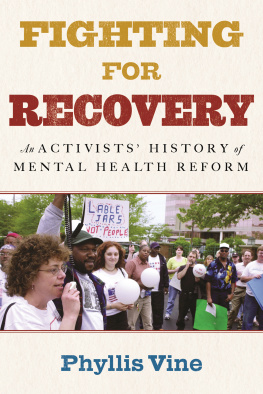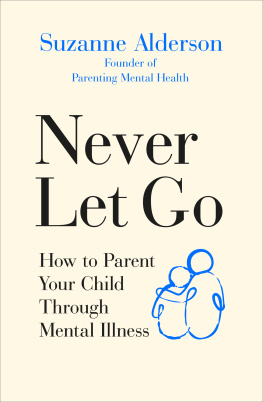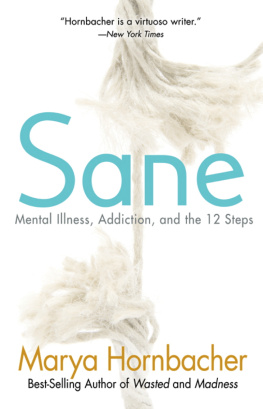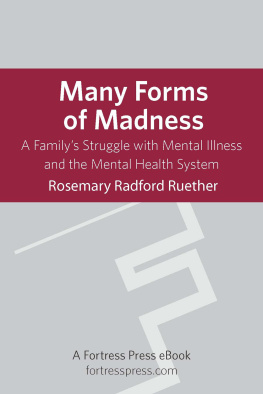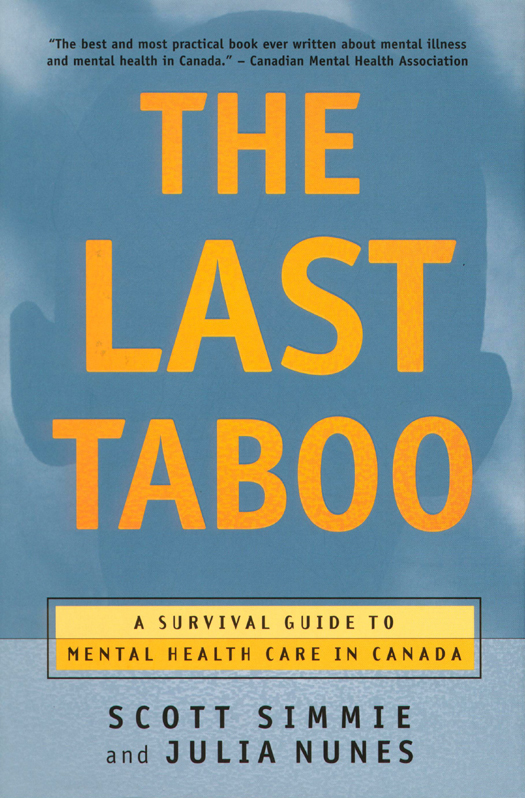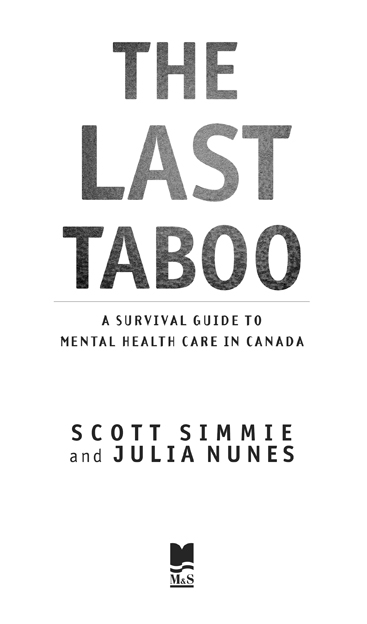More praise for The Last Taboo
I know of only a few books that explain mental health and illness well to the general reader. The Last Taboo is now one of these books, and it gives a welcome Canadian perspective. It is well-written and entertaining.
The Gazette (Montreal)
An important book that deserves wide readership.
Edmonton Journal
A guide to everything from the role of genetics, the environment and the law to current therapies, drugs, and alternative treatments. It offers the hope that recovery is possible.
Pamela Wallin, Globebooks.com
The authors have done a good job of presenting the basic facts about the mental health system in a clear, readable fashion.
Medical Post
The Last Taboo addresses a topic that has been crying out for such a carefully crafted, well-reasoned, and optimistic treatment. It is a unique blend of useful information, personal insights, and superior storytelling a hopeful book about the still obscure fact that people do and can recover from mental disorders, and an encouragement to all of us living and working in this field.
William A. Anthony, Executive Director, Boston Center for Psychiatric Rehabilitation
A grand, eloquent guide.
Hamilton Spectator
Highly recommended certainly lives up to its billing itself as a survival guide for people affected by mental illness.
Visions, CMHA BC
Simmie and Nunes bring credibility to the issue and may encourage others to re-examine their own lives.
Expositor (Brantford)
An understandable and readable discussion of mental illness and the system of mental health care in Canada.
Journal of Addiction and Mental Health
The authors demonstrate that behind the outward symptoms of disease resides a recognizable human soul.
Quill & Quire
BY THE SAME AUTHORS
Beyond Crazy: Journeys Through Mental Illness (2002)
Copyright 2001 by Scott Simmie and Julia Nunes
Cloth edition published 2001
Trade paperback edition published 2002
All rights reserved. The use of any part of this publication reproduced, transmitted in any form or by any means, electronic, mechanical, photocopying, recording, or otherwise, or stored in a retrieval system, without the prior written consent of the publisher or, in case of photocopying or other reprographic copying, a licence from the Canadian Copyright Licensing Agency is an infringement of the copyright law.
National Library of Canada Cataloguing in Publication Data
Simmie, Scott
The last taboo : a survival guide to mental health care in Canada / Scott Simmie and Julia Nunes. Trade pbk. ed.
eISBN: 978-1-55199-611-0
1. Mental illness Canada. 2. Mental health services Canada. I. Nunes, Julia II. Title.
RA 790.7. C 3 S 54 2002 362.20971 C 2002-903286-5
We acknowledge the financial support of the Government of Canada through the Book Publishing Industry Development Program for our publishing activities. We further acknowledge the support of the Canada Council for the Arts and the Ontario Arts Council for our publishing program.
McClelland & Stewart Ltd.
75 Sherbourne Street
Toronto, Ontario
M 5 A 2 P 9
www.mcclelland.com
v3.1
For all the consumers, survivors, and crazy people who shared their stories, their strength, and their wisdom.
CONTENTS
FOREWORD
This is an optimistic book about a difficult subject. It confronts the mystery and fear surrounding mental illness, the challenges of accessing appropriate services, and the roadblocks put up by societys attitudes. And it counters these realities with practical solutions, described by the real people who have tried them.
As a guide for leading the reader through the mental health field, The Last Taboo is a unique resource which fills a current void. For people unfamiliar with the field, it provides a map of the territory. For individuals who have experienced the mental health world as a consumer, family member, or service provider, it offers not only validation, but new ways of exploring the terrain. It addresses most common mental disorders, although it does not cover some particular conditions such as Alzheimers disease and related dementia-type disorders.
At the Canadian Mental Health Association, we have learned that there are many different perspectives on the difficulties and solutions, but no single answer. We see the problems every day. They include the complexity of mental illness itself, the stigma and ignorance surrounding it, inadequate services, and insufficient attention to peoples quality of life. The obstacles are fairly visible to most of us working in mental health, but sometimes the solutions are harder to come by. Where do we begin?
In fact, the strategies currently in place are almost as complex as the problems. As this book describes, there is the most obvious formal system of service providers, medications, and therapy. This is a very important resource to many people, but it is certainly not the only option. There is also an informal system of family, friends, and neighbours, and of others who have been through the same experience. It is a very different, but equally powerful, resource. And then there are the regular experiences of community to which every citizen is entitled: a home, a job, a friend. These, too, are critical elements of hope and recovery.
The people you will meet in the pages that follow put a human face on the many and different routes to healing. Whether it is a person in crisis gaining access to a rigid, unyielding system, a family member finally coming to terms with a long-past suicide, or an executive using alternative therapies, the stories in this book illustrate the many obstacles and paths around them in this field.
Underlying all of these approaches, there is one positive theme that seems to keep emerging. This is the need for control over ones life.
In the past several years, weve become increasingly aware of the importance of control in the various mental health issues we deal with. Employees who have control over the conditions of their work have a better chance of maintaining their physical and mental health than those with little control. People talking about their experiences of recovery from mental illness tend to mention control as a contributing factor. People in all kinds of situations feel better about the decisions which affect them and about themselves if they have control over those decisions.
Scott and Julias harrowing story about losing control and hope, and the long struggle to get them back, sets the theme for this book. We are shown the many different ways that people have gained control, and tips for navigating the various routes to health. By demystifying mental disorders and providing strategies for dealing with them, this book hands control back to the consumers and families, where it belongs.
In the end, The Last Taboo is a practical road map for people with mental disorders and those who care about them. All of us looking for paths to hope and recovery can find encouragement in these pages.
Ed Pennington, General Director
Bonnie Pape, Director of Programs and Research
The Canadian Mental Health Association


